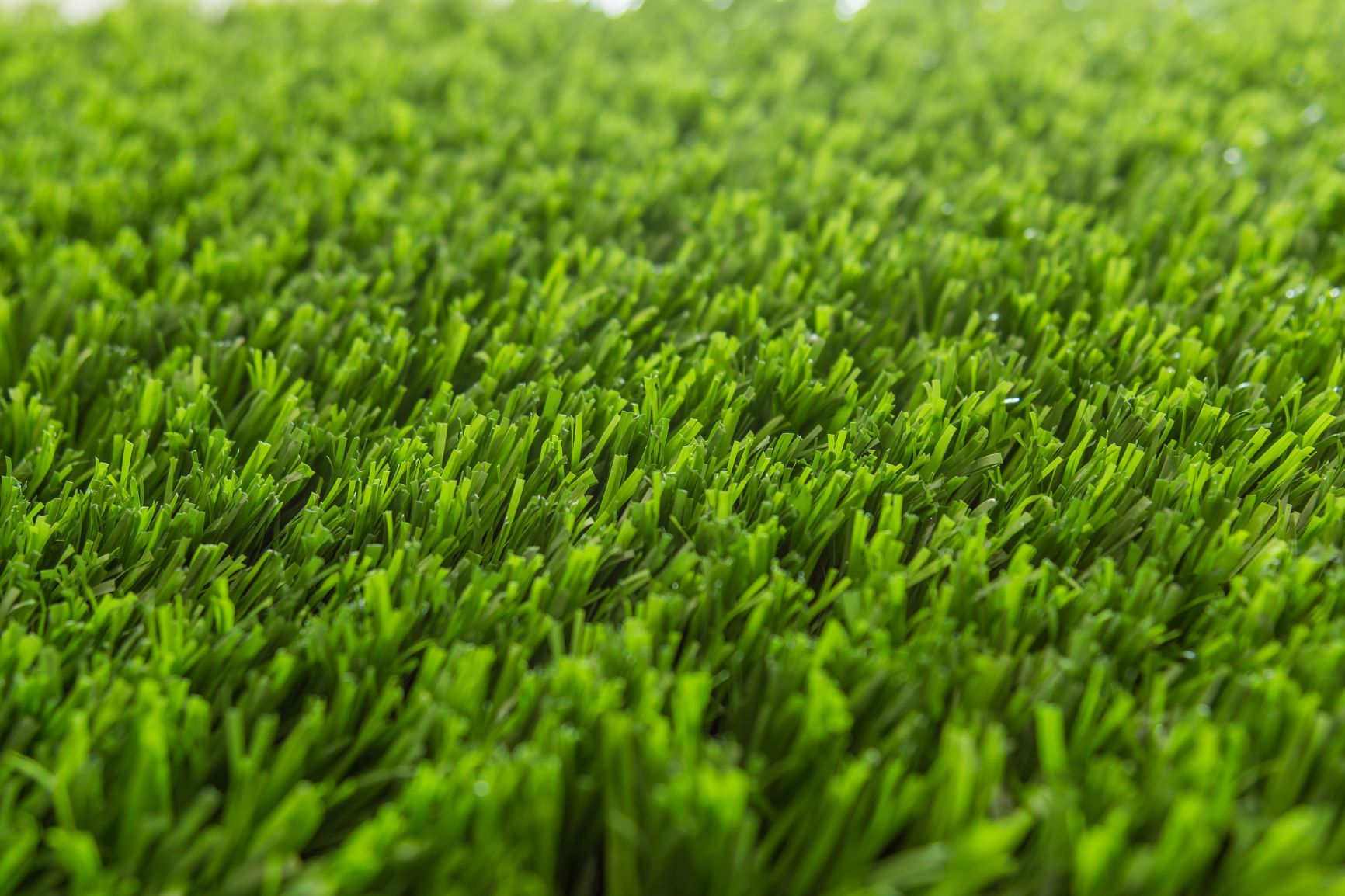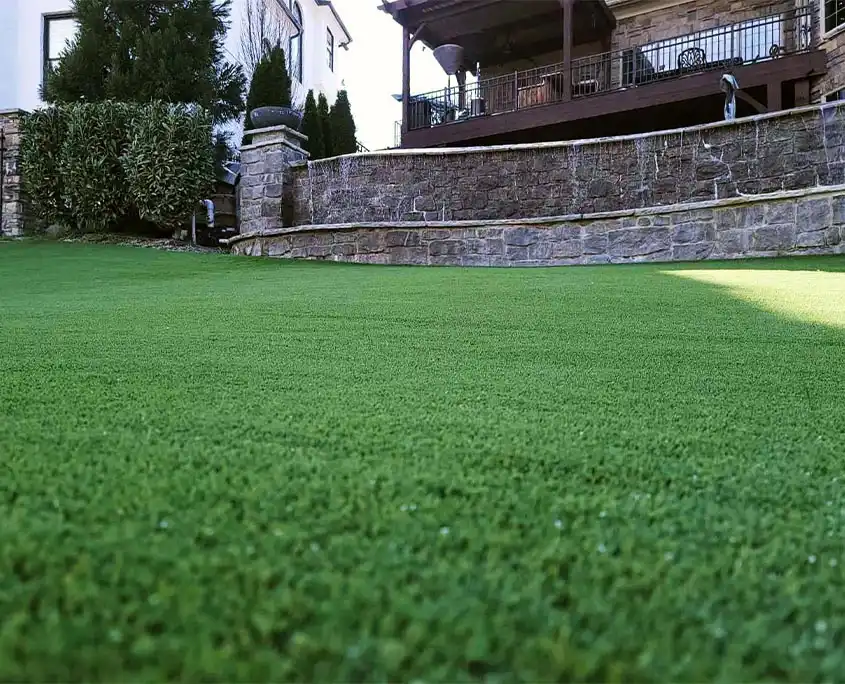Top-Rated Phoenix Turf Companies Specializing in Synthetic Grass Solutions
Top-Rated Phoenix Turf Companies Specializing in Synthetic Grass Solutions
Blog Article
Look Into the Environmental Conveniences of Opting for Synthetic Grass Solutions
The adoption of synthetic grass services presents an engaging chance to address pushing environmental obstacles. By dramatically minimizing water usage and decreasing the application of unsafe chemicals, these options not only advertise sustainable landscape design however also shield regional ecosystems. In addition, the lower carbon impact connected with decreased upkeep activities adds to a much more sustainable strategy to land monitoring. However, the ramifications of these advantages prolong beyond mere preservation initiatives, questioning concerning their long-term effect on environment preservation and general ecological equilibrium. Discovering these measurements reveals a complicated interaction worth considering.
Water Preservation Perks
Among one of the most substantial benefits of synthetic grass is its ability to conserve water. Traditional grass lawns require substantial irrigation, particularly in areas susceptible to drought or water constraints. In contrast, synthetic grass does not require watering, substantially lowering the total need for water sources. This function is especially valuable in dry areas where water deficiency is a pushing issue.
By removing the need for regular watering, synthetic grass adds to sustainable landscape techniques and assists minimize the ecological effect of too much water usage. In addition, the conservation of water includes the reduction of overflow, which can result in soil erosion and river air pollution.
Additionally, the setup of synthetic grass enables property owners and communities to allot water sources extra efficiently, concentrating on crucial uses such as alcohol consumption water and farming. The shift towards man-made grass not just promotes accountable water usage however likewise straightens with wider environmental goals focused on maintaining all-natural sources.
As communities increasingly focus on sustainability, the water conservation benefits of synthetic grass present a compelling instance for its adoption in property and commercial landscape design projects.
Lowered Chemical Usage
The shift to man-made grass considerably decreases the dependence on chemical treatments commonly made use of in natural grass upkeep. Traditional turf administration generally includes the application of fertilizers, herbicides, and chemicals to advertise growth and control pests. These chemicals can pose risks to human health and wellness, local wild animals, and the environment, adding to dirt and water contamination.
In contrast, synthetic grass gets rid of the need for these dangerous materials. As soon as mounted, it calls for very little upkeep, largely including regular cleaning and seldom infill replenishment. This decrease in chemical use not just profits the immediate setting however likewise contributes to more comprehensive ecological stability. By reducing the launch of synthetic compounds into the ecological community, synthetic grass promotes healthier soil and water supply.
Additionally, the absence of chemical runoff connected with synthetic grass setups helps shield local rivers from contamination, supporting aquatic life and keeping biodiversity. Arizona turf. As neighborhoods significantly prioritize sustainable practices, choosing synthetic grass presents a viable remedy that lines up with environmental preservation goals. With this change, homeowner can delight in lavish eco-friendly areas without endangering ecological health, leading the way for a much more lasting future
Reduced Carbon Impact

Additionally, the setup of synthetic grass can result in substantial water conservation. All-natural lawns need significant quantities of water for watering, which not just includes to the carbon footprint related to water extraction and treatment but additionally pressures regional water sources. In comparison, man-made lawn requires marginal maintenance, calling for no watering, consequently considerably minimizing water use and its linked energy expenses.
Furthermore, the longevity of synthetic grass contributes to its reduced carbon influence. With a life-span of up to 15 years or even more, the need for constant substitutes is diminished, resulting in less waste and reduced energy intake in manufacturing and getting rid of conventional yard choices. Overall, synthetic grass presents a lasting choice for ecologically conscious landscaping.
Environment Conservation
Habitat conservation is a vital consideration in the debate over landscape design choices, particularly when contrasting synthetic grass to all-natural grass. All-natural turf yards often need substantial maintenance, including using chemicals, plant foods, and herbicides, which can detrimentally affect neighborhood communities. These chemicals can leach right into the soil and rivers, harming native vegetation and animals and disrupting local habitats.
In contrast, synthetic grass provides an opportunity to lower the ecological footprint of landscaping. By selecting synthetic lawn, property owners can lessen the disturbance of all-natural habitats connected with conventional lawn care methods. Fabricated turf eliminates the need for dangerous chemicals, thus protecting nearby wildlife and maintaining the stability of bordering communities. The installment of fabricated lawn can lead to the conversion of previous turf locations right into more biodiverse landscapes, view such as pollinator gardens or native plant locations, which can sustain regional wildlife.
Inevitably, the transition to synthetic grass not just saves water and reduces upkeep initiatives yet also fosters a much more unified relationship in between human tasks and the natural environment, advertising habitat conservation at the same time.
Long-Term Sustainability
Long-term sustainability is a vital variable in reviewing the advantages of man-made lawn over conventional yard yards. One of the most significant benefits of artificial lawn is its toughness; it can last approximately 15-20 years with very little maintenance, whereas all-natural yard needs constant reseeding and replacement. This durability lowers the demand for consistent sources, such as water, plant foods, and chemicals, which are important for maintaining a healthy and balanced yard lawn.
Furthermore, man-made lawn contributes to a decrease in carbon emissions associated with lawn care click devices. Typical grass frequently call for gas-powered mowers, leaners, and blowers, every one of which add to air contamination. Arizona turf. In comparison, man-made lawn removes the requirement for such tools, promoting a cleaner environment
Furthermore, the production of synthetic grass significantly makes use of recycled materials, boosting its sustainability account. As suppliers embrace environmentally friendly practices, the ecological footprint of synthetic grass continues to diminish.

Conclusion
The adoption of synthetic grass solutions provides significant ecological benefits, including substantial water conservation, reduced reliance on unsafe chemicals, and a reduced carbon impact. Artificial grass help in maintaining all-natural habitats by lessening land disruption and promoting long-lasting sustainability through the use of sturdy materials. Jointly, these variables underscore the capacity of artificial grass to add favorably to environmental health and wellness and supply a practical option to typical landscaping methods in a significantly resource-conscious world.
In comparison, fabricated turf does not require watering, considerably minimizing the total need for water resources. By minimizing the release of synthetic substances right into the ecological community, artificial turf promotes healthier soil and water systems.
Additionally, the setup of fabricated lawn my company can result in substantial water conservation. In contrast, artificial turf needs minimal maintenance, requiring no watering, consequently substantially lowering water use and its linked power prices.

Report this page